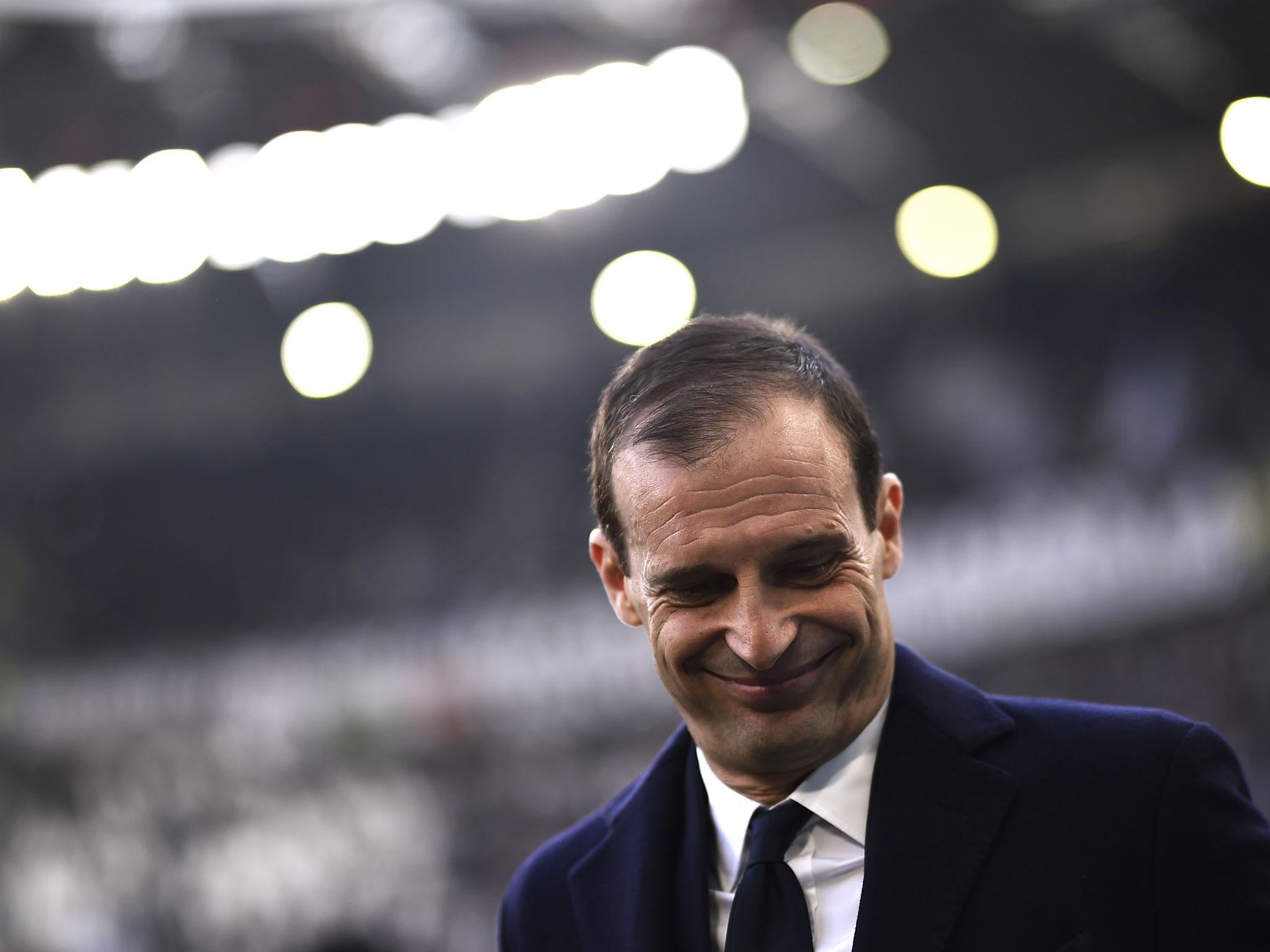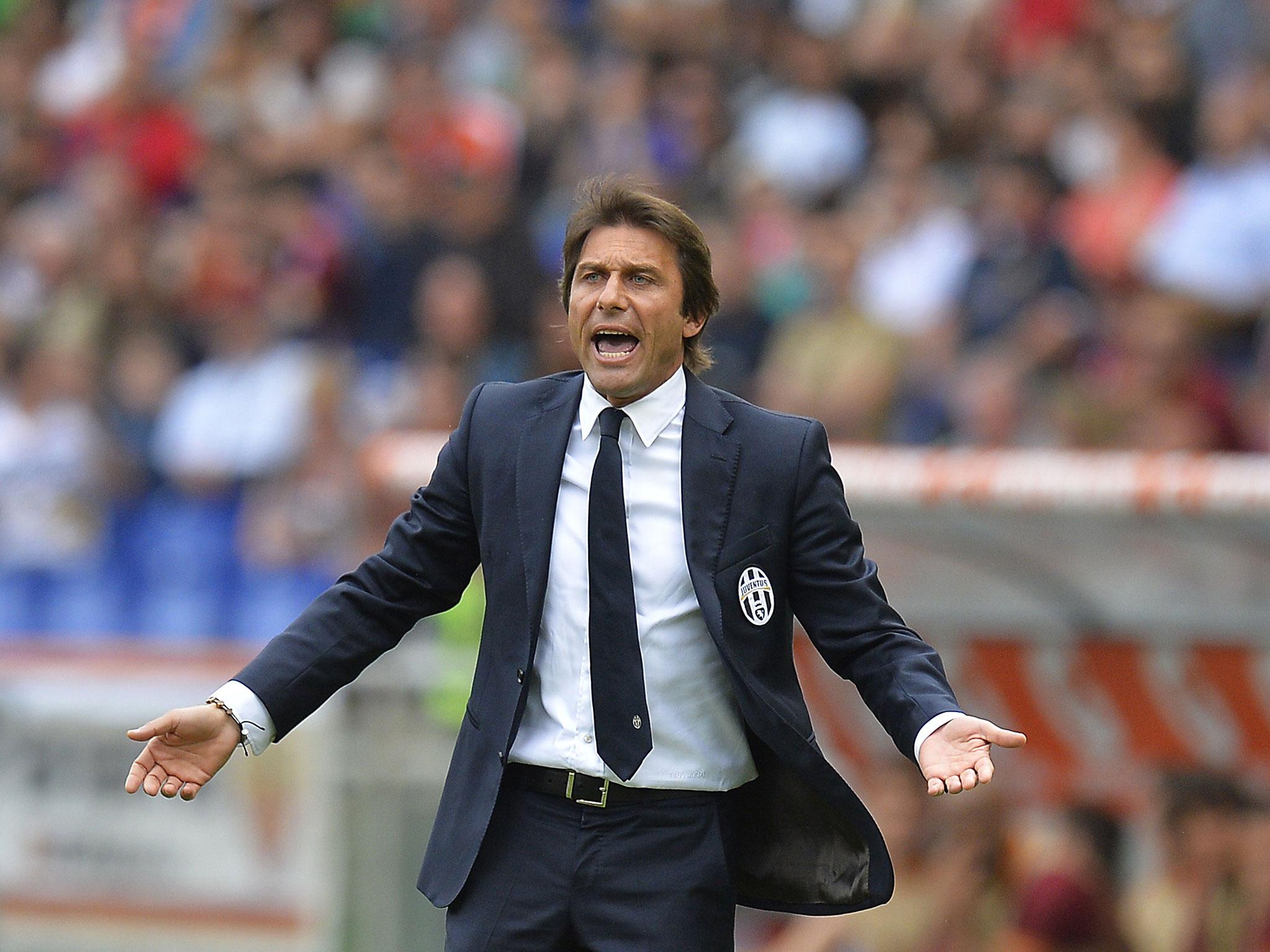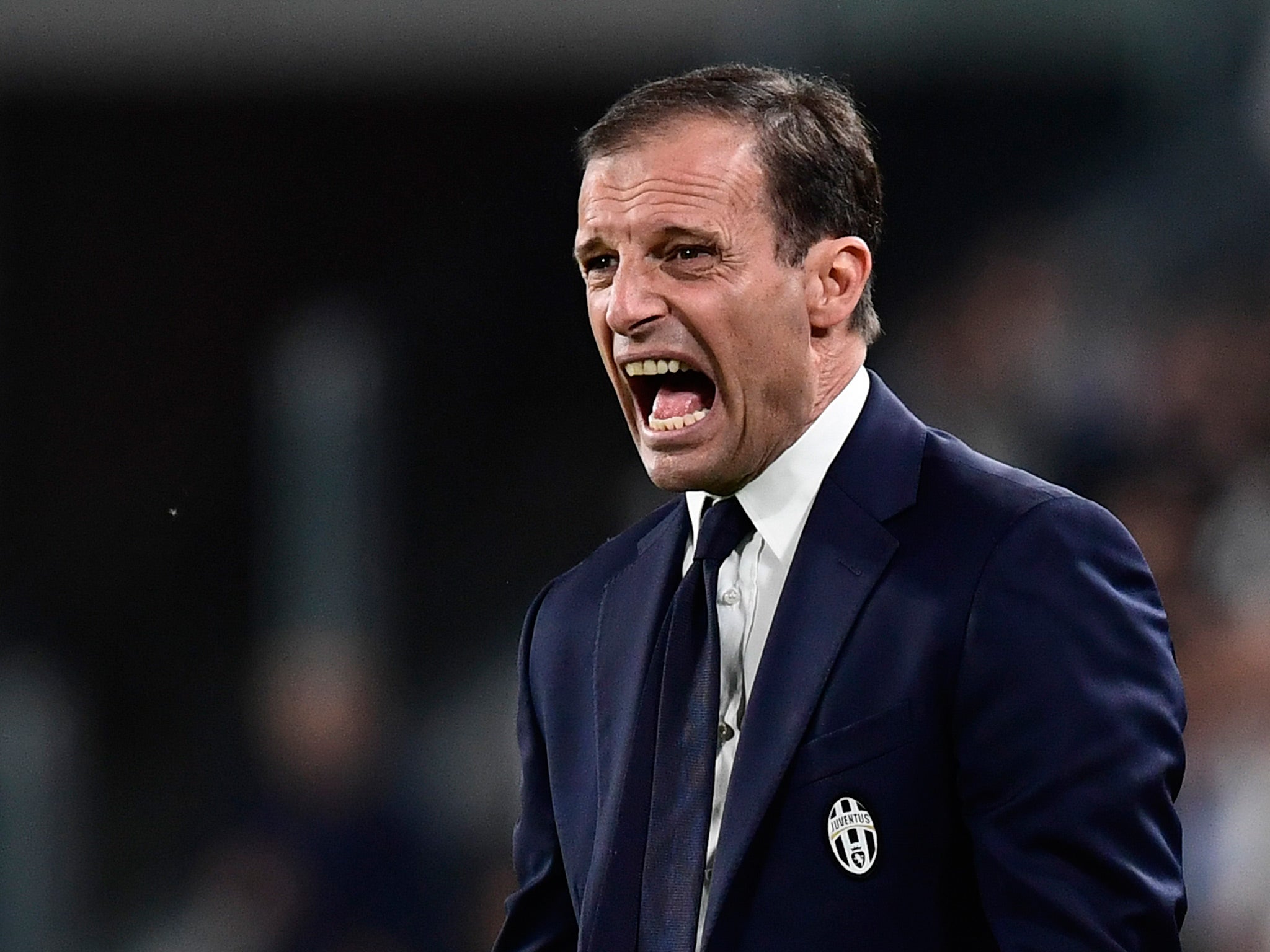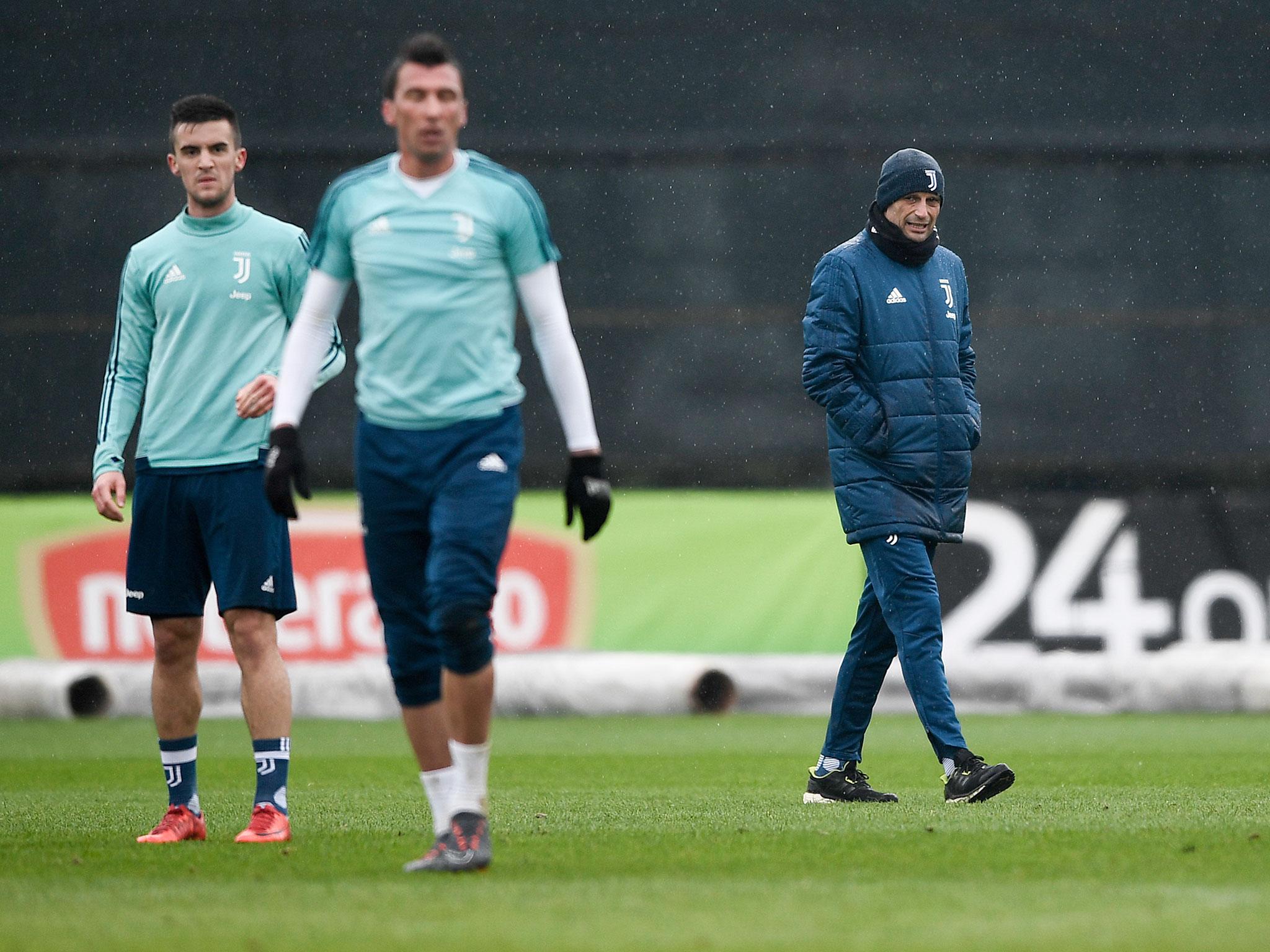Massimiliano Allegri, Mauricio Pochettino and an Italian tale that has taken Juventus to new heights
Initially expected to replace Tim Sherwood at Tottenham in 2014, Allegri would later take charge at Juventus following Antonio Conte's shock resignation. The rest, they say, is history

Shortly after a power struggle at AC Milan between Barbara Berlusconi and Adriano Galliani ended with his dismissal, Massimiliano Allegri boarded a plane to London. He took in some Premier League games, ate at Novikov, learned a bit of English. It was time to broaden his horizons. Prepare for the next chapter of his career.
That Allegri figured in Tottenham’s thinking for the job during Tim Sherwood’s spell as caretaker perhaps shouldn’t come as surprise given Franco Baldini’s influence at the time. Fabio Capello’s former consigliere had also recommended him for the post at Roma when Luis Enrique quit six months earlier only for Galliani to persuade Silvio Berlusconi that sacking Allegri would be a mistake. He was all that was stopping Milan coming apart at the seams, halting a decline that hastened with his departure in spring 2014.
Come April of that year, Il Corriere dello Sport were so confident Allegri would be the next Tottenham manager that they made it a front-page lead. “It’s done,” they declared. Only it wasn’t. Tottenham chose Mauricio Pochettino and Allegri ended up doing some TV around the World Cup, emerging instead as one of the frontrunners to replace Cesare Prandelli after Italy’s group stage exit. Not too long afterwards he was helping his daughter move apartments in Milan when the phone rang. Rather than the Italian Football Federation, it was Juventus.
Initially Allegri thought the Old Lady wanted his opinion on some players. Then came the shocking, if not entirely surprising, news of Antonio Conte’s resignation over transfers, among other things, which had led him not to extend his contract at the end of the previous season.
On Tuesday in Turin, Allegri and Pochettino’s paths cross again. What unites Juventus and Tottenham is the shared conviction in the boardroom that they got it absolutely right when deciding to entrust these two men with their respective jobs four and a half years ago.
Part of the satisfaction with Allegri comes from the jeopardy Conte threw Juventus in by walking out when pre-season had just started. It’s why the relationship between the Chelsea manager and the hierarchy at his former club remains respectful but cold notwithstanding everything he achieved. In leaving so suddenly, there was a sense he compromised the progress made between 2011 and 2014. Think about it. The elite successors they might have lined up had Conte left in May and not July, would, in all likelihood, have been taken by then. Luckily for Juve, Allegri was still in the market. Not that their fans, devotees of Conte’s personality cult, saw it that way at the time.
Transfers Juventus were in the process of completing also fell through as their attention turned to identifying a new manager. Juan Manuel Iturbe was Turin-bound, his plane ticket booked. But Juve had to drop everything and Roma, the runners’ up in Conte’s final year, took advantage. In hindsight, missing out on a player who turned out to be an expensive flop in the Eternal City was a bullet dodged. But that’s not what it felt like at the time.

Juventus appeared vulnerable. The pretenders to their crown sniffed blood, encouraged by the impression left by Conte of being unable to get anything more out of this team. Conte expressed the idea that Juventus asking him to win the Champions League was a bit like going to a restaurant with only €10 in his pocket when dinner costs €100 a head. That comment quickly came back to haunt Conte as Allegri, in his first season, guided Juventus to the Champions League final for the first time since 2003. They returned last June, showing it was no fluke.
The fact Allegri has had Juventus a game away from a treble in two of the last three years is to his immense credit, and acts as a reminder that it was the Tuscan, not Conte, who ended the club’s two-decade long drought in the Coppa Italia. True, initially he didn’t change much – why would you considering how dominant Juventus had been domestically? – but often in these situations ego gets in the way of judgement. It’s enough to recall Brian Clough replacing Don Revie at Leeds or Rafa Benitez taking over from Jose Mourinho at Inter with disastrous consequences.
Common sense is remarkably uncommon in situations like these. As is the restraint Allegri used. And besides, it’s not as if he left Juventus completely alone. Still closely identified with the 3-5-2 Conte installed, Juventus played a 4-4-2 diamond in their run to the Champions League final in 2015 and 4-2-3-1 en route to Cardiff last season. In both cases, Allegri rolled the dice when the stakes were high, making the change when it looked like they might not get out of the group stage in his first year, and when defeat to Fiorentina threatened to reopen the title race last year. The pattern repeated itself in November when a switch to 4-3-3 precipitated the incredible run Juventus are currently on in which they have conceded just one goal in 16 games.

“It seems we have one characteristic in common,” Pochettino told La Gazzetta dello Sport last week. “Flexibility.” That and the ability to evolve a team. Allegri lifted Juventus’ complex in Europe. He has rebuilt after the exits of Pirlo, Vidal and Tevez in 2015, Pogba and Morata in 2016, and Leonardo Bonucci and Dani Alves last summer. That’s easier said than done as Tottenham and Liverpool well know from their experiences of Gareth Bale and Luis Suarez’s departures for Spain.
For all the familiar stats about Juventus’ brilliance at the back, their +46 goal difference is the highest in Serie A since 1958/59 and comes from Allegri’s observation that goals need to come easier to this team if they are to win the Champions League.
Improvement has been constant under his management which is why Juventus’ general manager Beppe Marotta considers Allegri “one of the best around.” He is the consummate big club coach, managing owners, super stars, and all the while keeping everyone onside even when it comes to gutsy decisions like sidelining Ronaldinho at Milan, ushering Filippo Inzaghi, Clarence Seedorf and Rino Gattuso into retirement or dropping Bonucci before a Champions League knock-out tie. Allegri emerged with his reputation and authority enhanced every time.
As with Conte who grabbed the attention of the British public more for what he did at the Euros with Italy than at Juve, there is a sense Allegri’s profile isn’t yet as high as his talent merits. Maybe that’s because he doesn’t have a trend-setting tactical innovation to hang his name on, and has so little time for them anyway. He can’t stand theory, the rise of analytics and gives short-shrift to anyone who reduces a team’s success down to a particular formation.

Where Allegri stands out is in his intuition, an intangible quality that’s harder to market than gegenpressing or tiki-taka. You can’t hashtag the moment of inspiration he had while making a pot of coffee one morning, which led him to reconfigure the team in such a way that, on paper, looked far too top heavy to be feasible but suddenly propelled Juventus to another level, another Champions League final.
This cuts to the essence of Allegri. He believes there are two kinds of coaches. The naturals and the costruiti; the built or manufactured. Allegri, for the record, classes himself a natural. He doesn’t need to spend hours and hours in front of a TV studying game tape. Most of the time 15 minutes is enough for him to ‘get it’ and that helps him transmit the most Ancelotti of qualities to the team: serenity. Unlike with the costruiti, who may be at a loss as to what to do when their best laid plans go awry, the confidence that players have in Allegri’s “feel” for the game remains a major part of Juventus’ success.
Is it any wonder the Old Lady thinks she has found her perfect man?
Join our commenting forum
Join thought-provoking conversations, follow other Independent readers and see their replies
Comments